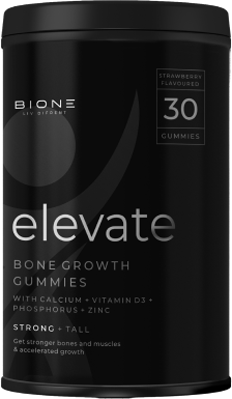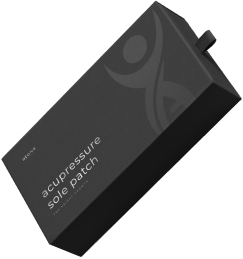The Human Gut
Anyone with an interest in his wellbeing will pay attention to his gut health. The term “gut” refers to the digestive system, especially the stomach and the intestines. Most of us think that the functions of the gut are limited to breaking down the foods we eat, converting them into energy and nutrients that the body can use and eliminating the waste products of digestion. But the functioning of the gut is a lot more complex than we think. It is home to trillions of microbes that have an effect on many other organs and systems in the body ranging from the skin to our metabolism and mental health. We are healthy when the gut is healthy. A leaky gut is a condition that can seriously disrupt our health and happiness.
What is Leaky Gut?
Before we talk about a leaky gut diet, we need to understand exactly what leaky gut is.
Millions of cells make up the lining of our intestines. All these cells are joined together and act as a barrier that releases nutrients into the bloodstream and keeps any toxic waste products of digestion in. When the gut becomes unhealthy, this protective lining becomes weaker. The result is the development of small holes through which waste food particles, toxins and harmful bacteria escape into the bloodstream. These toxins trigger harmful inflammation, which can cause skin outbreaks, food sensitivities, bloating, gas, fatigue, headaches and joint pain.
What causes Leaky Gut?
One of the main contributory factors to “leaky gut” is an unbalanced diet that is low in fibre and high in sugar and saturated fats. Another factor is age. When we are older, the intestinal cells become damaged more easily and take time to heal. This makes them more permeable. According to researchers, some people have a genetic tendency to have a weak gut lining that is more porous when compared to that of others.
One step we can take to reduce the possibility of leaky gut is to take a DNA test like the Bione DNA test. This test can help you understand your response to different food groups and how you can best optimise your diet to achieve your wellness goals. It is a simple test that can be taken at home and all you need to provide is a saliva sample.
Bione is focused on equipping more people with the knowledge and guidance that they need to eliminate disease from their life. Many serious diseases have genetic components. Awareness about these risks and what you need to do to decrease them can be life-changing.
We cannot do anything about our age or the genes we are born with, but we can change our diet to make our gut healthier. This becomes easier when you use a test like the Bione Gut Microbiome test to know exactly what your gut health status is. Based on the results of these tests, you can follow a tailor made diet that can help you achieve optimal health.
5 foods that can help you overcome leaky gut:
Here are five foods that you should be on your “must eat” list if you want to maintain good gut health.
- Fermented foods like yoghurt:
 Yoghourt and other fermented foods are rich in probiotics, including plain yoghurt, raw sauerkraut, Greek yoghurt, and kefir. Live germs called probiotics work to maintain a balanced population of beneficial bacteria. Their intake has been linked to a wide range of health benefits.Hence, such foods are some of the best foods for the gut.
Yoghourt and other fermented foods are rich in probiotics, including plain yoghurt, raw sauerkraut, Greek yoghurt, and kefir. Live germs called probiotics work to maintain a balanced population of beneficial bacteria. Their intake has been linked to a wide range of health benefits.Hence, such foods are some of the best foods for the gut. - Leftover potatoes: No, we are not joking. The humble potato deserves a lot more credit than it gets. The process of roasting and cooling potatoes modifies the structure of the carbohydrates in them, converting them into a form that is known as resistant starch. This starch passes through the small intestine into the colon in undigested form, serving as one of the preferred foods for gut bacteria. When the gut bacteria feed on the resistant starch, they produce butyrate. This is not a term that we are familiar with. Butyrate is a fatty acid that can strengthen gut walls and might even be able to slow down the growth of tumours in the colon. Research has proved that resistant starch can be useful for losing weight and reducing the risk of diabetes. Ideally, about one medium sized potato which is roasted and then cooled can provide about 20 g of resistant starch which should be consumed on a daily basis.
- Green bananas: Another food which is high in resistant starch is green bananas. Up to 38 g of resistant starch may be found in a medium-sized green banana. In the event that you prefer yellow bananas, you still will get at least 5 g of resistant starch. Bananas are also an excellent source of soluble fibre.
- Fruits: Fruits which are high in fibre serve as the easiest way to maintain a favourable pH balance in the colon. The colon needs to be slightly acidic to support good bacteria and to prevent harmful bacteria from thriving. For optimal gut health, the colon’s pH should be between 6.7 and 6.9.. Fruits like raspberries, pears, apples, kiwis and blueberries are all rich in fibre. The skin of pears is particularly beneficial as it has three to four times as much phytonutrients as the flesh. Phytonutrients include antioxidants, anti-inflammatory flavonoids and cancer fighting phytonutrients like cinnamic acids. Eating apples not only increases fibre intake but also has an effect on the numbers of two bacteria (clostridiales and bacteroides) in the large intestine. Both these bacteria play a key role in metabolism or the rate at which food is converted into energy. The fibre in kiwi binds with toxins in the colon and removes them thus reducing the risk of colon cancer. Kiwis are low in fat but rich in nutrients making them another good fruit to consume. Prebiotics like bifidobacteria found in large quantities in blueberries help to promote intestinal health.
- Mushrooms: Mushrooms are edible fungi which have a number of prebiotic components like α and beta β-glucans, chitin, mannans, galactans, xylans and hemicellulose. Mushroom polysaccharides act as prebiotics, feeding the beneficial gut microbes. This in turn creates nutrients like vitamin K and SCFA (short chain fatty acids) which can repair the cells of the intestinal walls. Researchers from Hong Kong and China conducted a study in which they found that mushrooms can contribute to our immunity against tumours, atherosclerosis and pneumococcal pneumonia. Even simple white button mushrooms can increase microbial diversity and change the composition of the gut flora while stimulating local inflammatory response. Mushrooms are also known for their anti-cancer, anti-allergy and cholesterol-lowering attributes.
The foods mentioned above like mushrooms, fermented foods, green bananas, potatoes and fruits are some of the best foods for the gut. Just like there are foods for gut health, there are a number of foods that we need to avoid or restrict in order to improve our gut health. They include sugar, gluten and processed foods which can contain a high amount of additives and preservatives. Don’t resort to trial and error in figuring out what foods might work best for gut health. A Bione Gut Microbiome test can give you an overview of your gut microbiome and help identify foods that you need to decrease, limit and increase to help improve your gut health. What is effective for one individual may not be effective for another. Getting an idea about your unique gut microbiome is the first step to restoring gut health. If you have been experiencing any symptoms that point to leaky gut like digestive issues, joint pain, migraines, skin breakouts or chronic fatigue, it could be your body’s way of telling you that it is time for a gut check.











